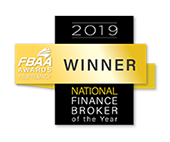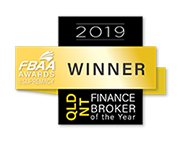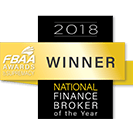First Home Buyer Hub Get the right home loan Choose the right home loan
Choose the right home loan
In this section, you’ll learn all about home loans: the different types of loans, the different features you can get, and what it all really means when it comes to the payments you’ll be making every month or fortnight. Home loans will no longer be a mysterious black box of confusing terms, with hidden fees and other tricks that will cause you to pay more money than you really have to. You’ll be able to have an informed discussion with your bank or mortgage broker and know exactly what type of loan is right for you.
I’d recommend reading this section even if you find home loans about as exciting as watching paint dry–when you have 20+ years of home loan repayments ahead of you, it pays to know what you’re getting into!
That being said, one of the best things you can do (even if you love finance) is to talk to a mortgage broker when you’re looking at your options.
I’m sure you’re probably thinking something like “Of course you’d say that, you’re a mortgage broker”, but if you’ll forgive me the shameless plug I’ll explain to you why you should use a mortgage broker–even if it’s not me.

Compared to a bank, mortgage brokers can offer you a choice from hundreds of different loans from dozens of loan providers. They are always up to date with the latest deals and best rates, and through experience with lots of different loan scenarios we know how to maximise the chances of your loan being approved.
Going directly to a bank is fine if you know exactly what you’re looking for. In other words, you have done the research and found a loan that you think is the best option for you. But there’s always a chance that you’ve missed something, and that can be a costly mistake.
Mortgage brokers work for you, our customers – we don’t work for the banks.
Our business relies on delighting our customers by finding them the best loan, not by choosing from a limited selection of loans that are really designed to rope you into the bank’s whole financial system.
You might also be wondering why we’re talking about finance before we’ve even started looking for a home. Surely it makes more sense to find a home you want, and then get a loan for whatever amount you need to buy that dream home, right?
This is where many first home buyers get it wrong. If you dive in to your property hunt without getting a pre-approval, you’re setting yourself up for unnecessary stress and disappointment. Things can move quickly in the real estate world, and if you’re unprepared you will find yourself scrambling to secure finance in the middle of everything else, which is complicated enough as it is!
You’re much better off front-loading the effort on this and talking to a broker before you start looking for a home. Not only will you save yourself some stress, you’ll be coming to the table with a much more realistic understanding of what you can afford. You will also be able to get one up on your competition–offers that are made with finance already secured are much more attractive to real estate agents, because they have a much higher chance of going through.
Now that we’ve covered that, let’s dive in and look at the details of home loans. This will help you to have an informed conversation with your mortgage broker and make sure that you get a loan that suits your specific needs.
Choose the right home loan
Home loans come in all shapes and sizes. There are literally dozens of different home loan types on offer, depending on what you’ll be doing with the home, what other features you need (like offset accounts), and a whole host of other criteria.
Choosing the right home loan is critically important. When you choose the right type of loan, the banks will give you better deals. You will end up with lower repayments, which means more money in your pocket instead of in the banks’. On the other hand, choosing the wrong home loan can cause all kinds of problems. You could get trapped with an expensive loan that doesn’t give you the flexibility you need, with hefty exit fees that make it prohibitively expensive to refinance your loan.
Based on your situation you need to decide on the type of loan and then convert it to bank-speak.

Different homes need different home loans
Different loans will also mean different features which we will get to in a minute.
With that, here’s a list of loan types (in bank speak):
|
What you’re doing |
Type of loan (in bank speak) |
|
Buying a home to live in |
>> Owner-occupied purchase |
|
Buying a property to rent out |
>> Investment property purchase |
|
Looking for a cheaper interest rate |
>> Refinancing owner-occupied home |
|
Building a home |
>> Construction of owner-occupied property |
|
Looking to increase your loan |
>> Equity release of funds for personal purposes |
Bank speak can be confusing, so don’t worry if you’re not exactly sure which type of loan you need right now. We’re going to walk you through the key differences in loan types to help you understand what you really need. And if it ever gets too much, just reach out to one of our home loan experts (LINK) and we can do it all for you!
Choose Between Variable or Fixed Home Loans
The first thing to decide on when choosing a loan is whether you want a fixed rate or a variable rate. With a fixed rate home loan, your repayments will stay the same for a fixed period (usually X to Y years). This gives you stability. With a variable home loan, your repayments will change based on current interest rates. This gives you more flexibility.
Here’s the truth: nobody knows which way the interest rate is heading.
So your decision to go for a fixed rate or a variable interest rate all comes down to one simple question: do you want flexibility or stability?
We recommend that home owners with income that is lumpy, like if you get paid big bonuses or likely to get a large inheritance and you want to smash down your home loan fast. And homeowners who want certainty around their repayments and do not want to risk their interest rate running up and being caught out should get a fixed home loan.
The good and bad of fixed and variable home loans
|
Variable Home Loans |
Fixed Home Loans |
|
You do not have certainty on your variable home loan interest rate, and monthly repayments as the rate are subject to change at any time during the life of the loan. |
You have certainty around your repayment and can budget around it. If you fix your rate for one to five years you know for the next 1-5 years your repayment will stay the same. |
|
When interest rates go down, your home loan interest rate also goes down. |
When interest rates go down, your fixed rate home loan stays the same. |
|
When interest rates go up, your variable home loan rate goes up. |
When interest rates go up, your fixed rate home loan stays the same. |
|
You can make extra repayments without penalty. |
You are limited to making a maximum of $10,000 per year in extra repayments |
|
100% offset account available for your pay, rent and other income. |
No, or 40% offset accounts are available on fixed interest rate home loans |
|
There are no penalties for paying off your home loan early, selling your property or refinancing. |
There can be penalties for paying off your home loan within the fixed rate term (one to five years). |
This is everything at a high level, but if you want to investigate further into finding the best home loan options, check out our detailed guide.





 Start again
Start again










